ГДЗ Англійська мова 6 клас. Підручник Prepare 6 [Джоанна Коста, Мелані Вільямс] 2023
Unit 16. Amazing animals.
Сторінка90Vocabulary and Reading
1. Match the photos A - J to the words in the box.
A - monkey; B - insect; C - chicken; D - bear; E - elephant; F - duck;
G - lion; H - mouse; I - rabbit; J - rat.
2. Complete the table with the words in Exercise 1. Which of the animals can you keep as pets?
| Wild animals | Farm animals | Pets |
| Bear, chicken, duck, elephant, insect, lion, monkey, mouse, rabbit, rat | Chicken, duck, insect, rabbit | Insect, mouse, rabbit, rat, dog, cat |
1. Which of the animals in Exercise 2 can help people? - Dogs can help people.
2. How do they help? - They can take care about you.
3. What can they do? - They can bring some things.
4. Look at the photos on page 95. Are these wild animals, pets or farm animals? Now read the story quickly. Which animal helped Jack?
wild animals, the mother bear.
5. Choose the best title for the story.
2. Bear to the rescue.
6. Read the story again and answer the questions.
1. What time of year was it? - It was May.
2. Was Jack walking in this area for the first time? - No, it was a place he knew well.
3. How many bears did he see? - He saw three.
4. Was the bear afraid of Jack? - No, it wasn’t.
5. What jumped onto Jack's back? - A mountain lion jumped onto his back.
6. Which was the larger animal, the mother bear or the mountain lion? - The mother bear was larger.
7. What did the bear do next? - The bear pulled the lion off his back.
8. What did the mountain lion do next? - The lion ran away.
Сторінка91
Grammar
1. Look at this sentence from the story and answer the questions.
1. Which verb is past simple, and which verb is past continuous?
saw is past simple, was walking is past continuous;
2. Which action, A or B, started first? Action A started first;
3.Which action, A or B, interrupted the other? Action B interrupted Action A.
2. Find three sentences with while in the story. Answer questions 2 and 3 in Exercise 1 about them.
While Jack was watching the bears, something large and heavy hit him from behind.
2. was watching started first
3. hit interrupted was watching
Then, while he was fighting it, the mother bear ran towards him.
2. was fighting started first
3. ran interrupted fighting
While the mountain lion was attacking Jack, the bear stood on its two back legs.
2 .was attacking started first.
3 . stood interrupted was attacking.
3. Find all the other examples of the past simple and the past continuous in the story.
Past simple: liked, knew, stopped, walked, knew, wasn't, didn't try, tried, didn't attack, attacked, pulled, ran off, went, looked at, walked, recognized, wanted, was.
Past continuous: was walking
4. Complete the sentences with one verb in the past simple and one in the past continuous.
1. The cats were sleeping outside when the rain started.
2. While the girl was reading a book, her phone rang.
3. The teacher arrived while Katie and Adam were playing a computer game.
4. Lucy was eating her lunch when she heard the news.
5. The boy fell off his board while he was skating in the park.
5. Correct the mistakes with the past simple and past continuous.
1. When we were looking for the lions at the zoo yesterday, we found the elephants.
2. Yesterday while I was coming back home, I dropped my purse in the road.
3. When I was waiting for the bus, I saw a monkey in the trees.
4. When we were walking walk beside the lake, we heard a noise behind us.
5. It was snowing when I went there and very cold.
6. In pairs, take turns to say sentences with when or while and the past simple or past continuous. Use the verbs in the box and animals from the table on page 90.
While I was walking along the road, the car stopped beside me.
While she was reading a book in the park, the bird sat near her.
Сторінка92
Reading
2. Read Part 1 of the article. Match two of the photos A - C to this part of the article.
B and C.
3. Look at the photos again. What do you think Part 2 of the article is about? Read it quickly to check your ideas. Then choose the correct answer for each gap.
swimming dogs which save people
1 - A. busy; 2 - A. help; 3 - C. says; 4 - B. brings; 5 - B. need; 6 - C. jobs.
Listening
1. Listen to the radio interview between Jim Townes and Sue Green.
Sue talks about things children learn from looking after pets. How many things does she talk about?
three - feeding pets, keeping pets clean, treating them as living things, not toys.
2. Now listen again and make notes in the chart about what Sue says children learn from pets.
| Food | Keeping them clean | Animals, not toys |
| They feed the pet. They can do it every day and learn that animals get hungry and thirsty just like them. | Brushing the animal. Animals don't like to be dirty. Cleaning the cage once a week. | They are living things. Learning to be kind, playing with them nicely and not hurting them. |
I think Sue is right and children can learn how to take care about pets.
Сторінка93
Vocabulary
1. Match the phrasal verbs from Part 1 of the article to the meaning. Then complete each sentence with one of the phrasal verbs in the correct tense.
1. get on - d. enter a bus, train, plane or boat.
2. get off - e. leave a bus, train, plane or boat.
3. look after - f. help someone when they are.
4. pick up - c. take something off the floor.
5. turn off - b. stop something working.
6. turn on - a. start something working.
***
1. Please pick up your bags from the floor and put them on the shelf.
2. Finally, the boat arrived to take us across the lake. But it was full and we couldn't get on.
3. I can only do my homework when it's quiet. Please can you turn off the radio?
4. I looked after my mum when she was ill. I made her meals and drinks.
5. I woke up suddenly in the night and it was very dark, so I turned on the light.
2. Listen to the sounds /u:/ and /u/. Then put the words in the box in the correct columns.
/u:/ move: do, food, group, suit, true, two
/u/ look: foot, good, put, took.
Сторінка94
Life Skills. Social responsibility.
1. Read the sentences in the speech bubbles and answer the questions.
1. Do you agree with the sentences? Why? / Why not?
Yes, I agree. We should respect pets and take care about them.
2. Which sentence do you prefer? Why?
I prefer second one.
3. Do you have a pet? Have you ever visited an animal reserve or seen a wild animal?
I have got a pet. It is a dog. I saw wild animals in the zoo.
2. Think of the animals in your country and answer the questions.
1. Deers are in danger. Hunters can shoot them.
2. Yes, they can. People shouldn't hunt them.
3. Look at the title of the article and the photos. How do bees help us? Why is it important to protect bees? What is the bee collecting in the photo?
Bees help us because they pollinate plants (giving us fruit and vegetables). We get honey and wax from bees - we eat honey and we use wax to make candles and clean wood. It is important to protect bees or we might not have fresh flowers. They are an important part of our world. The bee in the photo is collecting pollen.
4. Read the text again. Are the sentences right or wrong?
1. Bees are not important animals. - Wrong.
2. Bees help us to make candles. - Right.
3. Bees are in danger in some places. - Right.
4. Michaela has a blog. - Right.
5. We cannot help protect bees and other insects. - Wrong.
Сторінка95
5. Match the highlighted words in the text to the meanings.
1. we use this to make candles - wax.
2. moving pollen from one plant to another - pollinate.
3. organisations helping something or someone and raising money - charities.
4. all the plants and animals in one place and how they live together ecosystem.
5. to keep safe - protect.
6. Listen to Jayden and Alice talking. What are they talking about?
C. They are talking about rescue centres and volunteer jobs.
7. Listen again and write Alice or Jayden.
1. Alice is looking at a website.
2. Jayden is afraid of bees.
3. Alice says we get honey and wax from bees.
4. Alice finds a centre with rabbits, cats, dogs and rats.
5. Jayden has music lessons on Saturday mornings.
6. Alice is going to call to find out more.
8. Look at the list (a - f). Number the top three ways you think we can help animals. Compare your answers with your partner.
a. We can donate money.
b. We can protect animals.
d. We can make sure that animals have food and water.
f. We can find out ways to help animals.
9. Complete the sentences with the words in the box.
1. I want to at an animal rescue centre at weekends.
2. There are a lot of different ways to protect animals. You can find out more online.
3. I want to donate part of my pocket money to an animal rescue centre.
4. We need to make sure animals have safe homes, food and water.
Grammar
1. Choose the correct words to complete the sentences.
1 - outside; 2 - opposite; 3 - down; 4 - should;
1. I ate with my family outside the tent.
2. It's very easy to get to the sports centre because it's opposite my house.
3. I took a trip down the River Nile.
4. You should bring some of your computer games.
5. I liked the tennis match because Nadal and Grigor Dimitrov were playing.
6. In Thailand, I visited many places and the most interesting thing it was eating the food there.
7. It is was raining in Taipei when we got there yesterday.
2. Complete the sentences with the verbs in brackets, Use the past simple or past continuous.
1. When I arrived at the party, my friend was singing in the living room.
2. I was walking around the shops when I met my friend.
3. My dad called me while I was doing my homework.
4. I wasn't running when I hurt my foot. I was dancing.
5. I didn't see any animals when I was walking in the snow.
3. Give these people advice using should or shouldn't.
1. You should buy a bigger pair. You shouldn't wear them.
2. You should get a goldfish. You shouldn't get a big pet.
3. You should put sun cream on. You shouldn't sit in the sun.
4. You should borrow something from your sister. You shouldn't worry about it.
5. You should look at the map. You should ask someone.
 ГДЗ 6 клас 2023 Англійська мова Підручник Коста Вільямс Prepare Лінгвіст
ГДЗ 6 клас 2023 Англійська мова Підручник Коста Вільямс Prepare Лінгвіст
 Якщо помітили в тексті помилку, виділіть її та натисніть Ctrl + Enter
Якщо помітили в тексті помилку, виділіть її та натисніть Ctrl + Enter 25.11.2023,
25.11.2023,
 8 978,
8 978,
 0
0
 Назад
Назад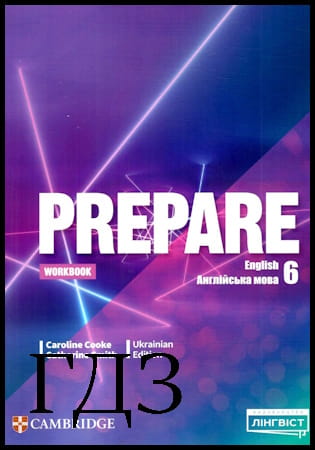
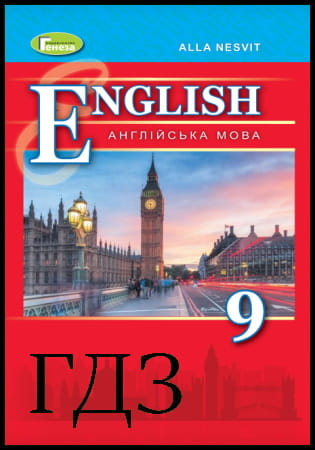
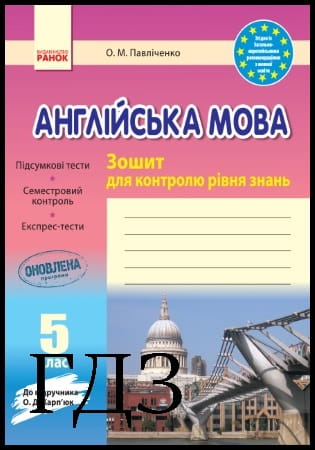
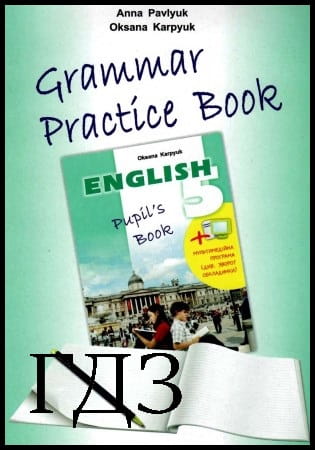
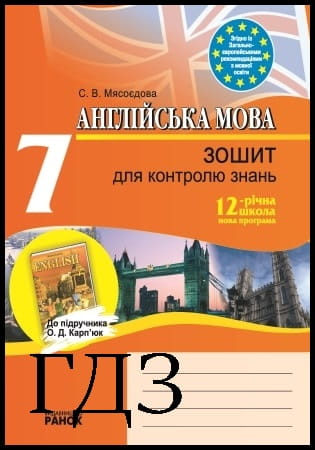
![ГДЗ Природознавство 5 клас. Підручник [Ярошенко О.Г., Бойко В.М.] 2018 ГДЗ Природознавство 5 клас. Підручник [Ярошенко О.Г., Бойко В.М.] 2018](/uploads/posts/2019-04/1555779316_5_p_y_u2018.jpg)
![ГДЗ Основи правознавства 9 клас. Підручник [Наровлянський О. Д.] 2017 ГДЗ Основи правознавства 9 клас. Підручник [Наровлянський О. Д.] 2017](/uploads/posts/2019-02/1550928122_9k_p_n_2017.jpg)
![ГДЗ Українська мова 8 клас. Підручник [Глазова О.П.] 2021 ГДЗ Українська мова 8 клас. Підручник [Глазова О.П.] 2021](/uploads/posts/2021-10/1633720388_8k_y_g_2021.jpg)
![ГДЗ Вступ до історії 5 клас. Підручник [Гісем О.В.] 2018 ГДЗ Вступ до історії 5 клас. Підручник [Гісем О.В.] 2018](/uploads/posts/2019-07/1564163269_5k_i_h_2018.jpg)